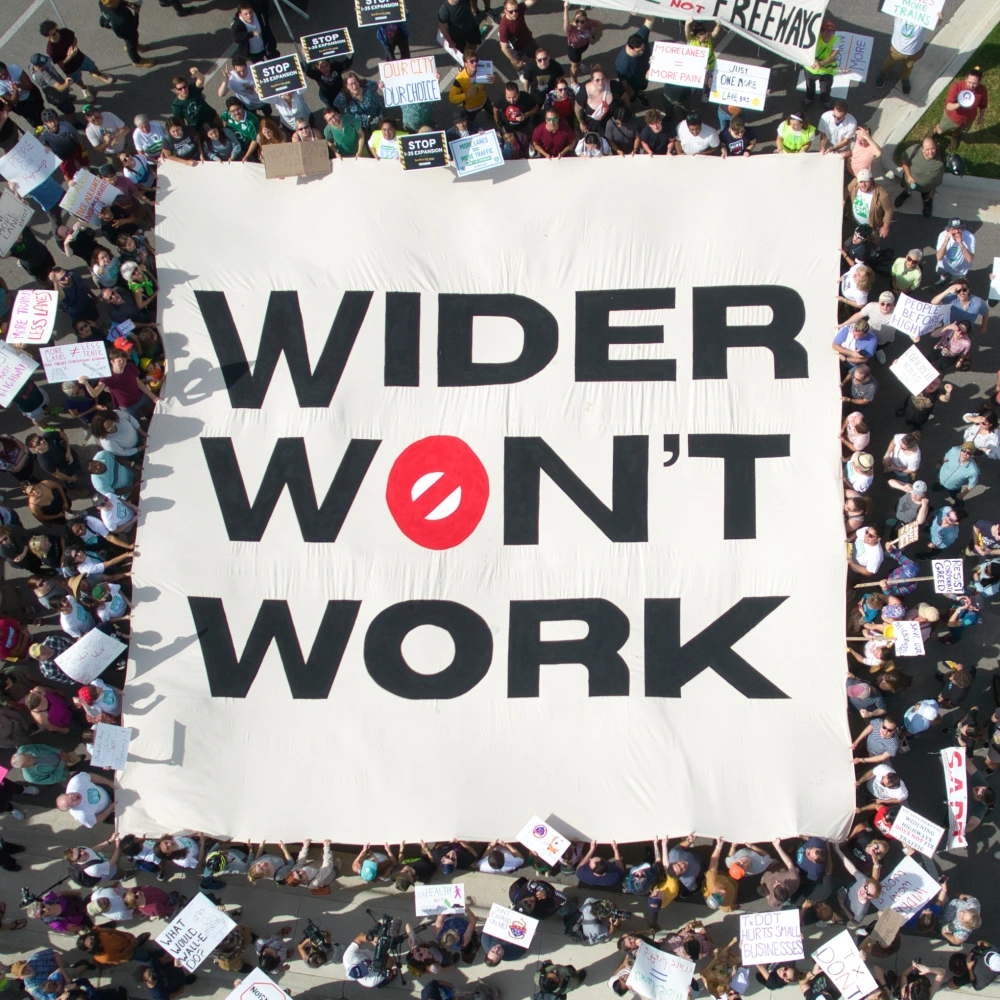
By Ben Crowther
Seventy years ago, planners and politicians sold highways as progress, essential to future prosperity and the only way to travel. Today, division, disinvestment, and dangerous driving are known to be the true effects highways have on the communities around them.
In her new book, City Limits: Infrastructure, Inequality, and the Future of America’s Highways, journalist Megan Kimble asks why the United States keeps investing in multi-billion dollar highway projects, even though they don’t solve traffic congestion and exact a significant human toll.
To answer the question, City Limits looks to Texas, the epicenter of new highway building. In 2015, Governor Greg Abbott advanced the Texas Clear Lanes initiative, promising to solve congestion by spending the state’s transportation dollars almost exclusively on road projects. Since then, Texas has allocated $66.7 billion toward damaging highway projects, leaving resources unavailable for active transportation, transit, safe streets, and even basic road maintenance.
Three highway projects in Houston, Austin, and Dallas show what’s at stake when states like Texas buy into the persistent belief that new roads equal prosperity. In Houston and Austin, two highway expansions (I-45 and I-35) imperil local investments in neighborhoods: about 1,600 homes, businesses, schools, and churches. In Dallas, a different, community-driven proposal looks at the local value that could be returned to the city and its residents if Texas converted I-345 into a boulevard.
City Limits captures the stories of the people whose lives were upended by highway construction. In Houston’s 5th Ward, a historically Black neighborhood, the construction of I-10 and I-69 in the 1960s pushed out hundreds of residents, including a young O’Nari Burleson. Before the highways, she lived within walking distance of Phillis Wheatley High School. When highway construction forced her family to move further away, she had to walk four miles to get to school everyday. The current expansion plans for I-45 in Houston threatens to uproot a new generation of 5th Ward families.
The book also captures the story of the people fighting back against these damaging highway projects. Chloe Cook of Stop TxDOT I-45 in Houston and Adam Greenfield of Rethink35 in Austin joined Megan on the webinar to discuss the visions and goals of their respective movements. Both spoke about righting historic wrongs as these highways reach the end of their designed lifespans and drew inspiration from the earlier highway revolts in the middle of the 20th century.
Advocates and author alike talked about how to keep people interested in a bureaucratic process that’s mundane and takes years to play out. For the advocates, protesting official meetings, filing lawsuits, and hosting their own rallies has garnered media attention and helped spread the word. They’re working on building a social movement that draws people in. For Megan, the human element is also the center of her storytelling: “I’m not talking to the highways. I’m talking to people, the people who are impacted by these highways.”
Want to get involved? Sign up for the Freeway Fighters list serv for the latest news and updates!
Check out the full recording of the webinar: